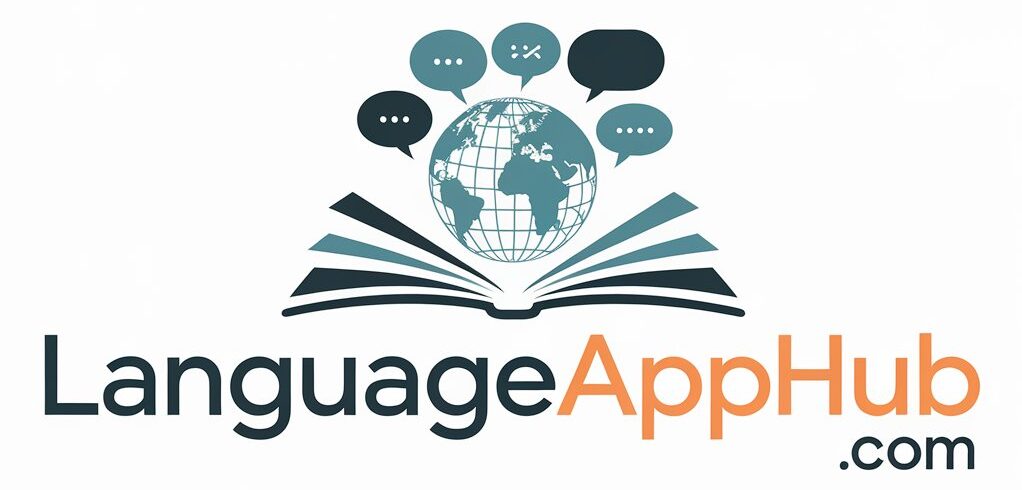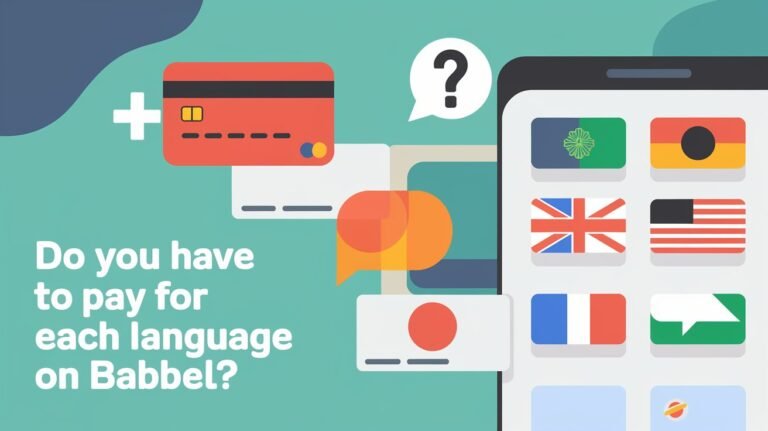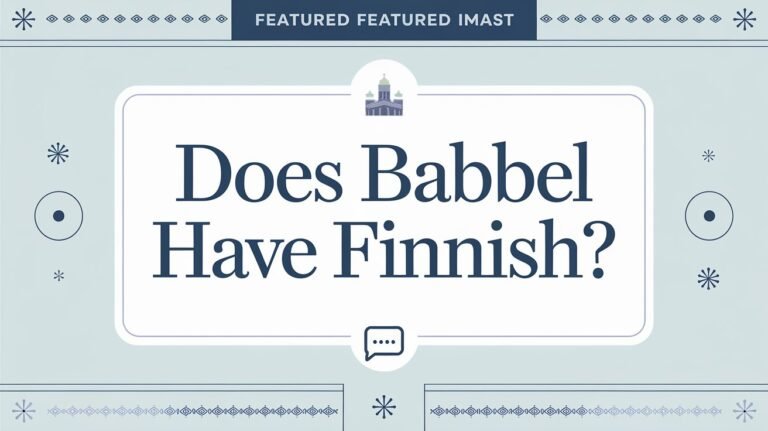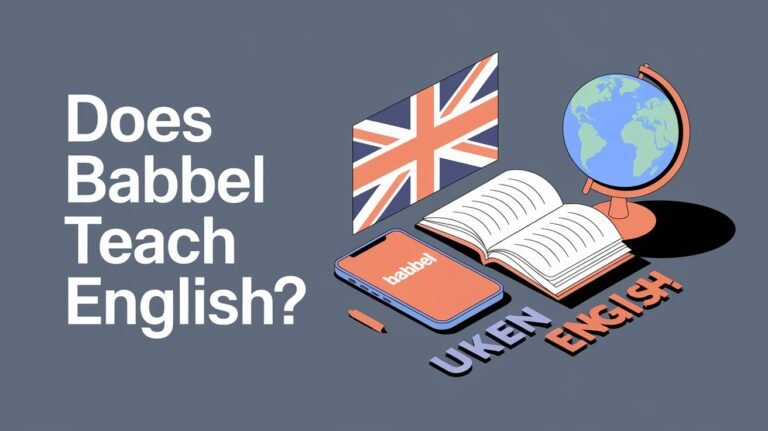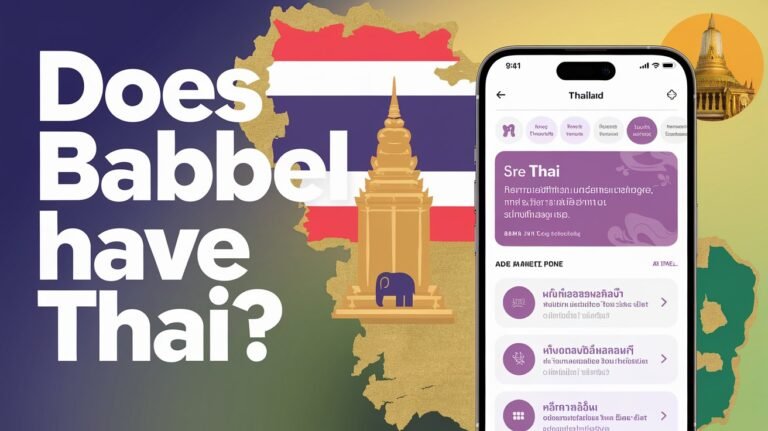What is Babbel? A Comprehensive Guide to the Popular Language Learning Platform

Thinking about learning a new language? Babbel teaches 14 languages through online lessons that match how your brain likes to learn. Find out if this app fits your needs and style as you begin your language journey.
What is Babbel
Babbel burst onto the language learning scene in 2007, founded by Markus Witte and Thomas Holl in Berlin, Germany. Since then, it has grown into a global phenomenon, boasting over 10 million subscriptions sold worldwide. But what sets Babbel apart from other language learning apps?
At its core, Babbel aims to make language learning accessible, enjoyable, and effective for everyone. The platform’s unique approach combines cutting-edge technology with insights from linguistic experts to create a personalized learning experience. Whether you’re a complete beginner or looking to brush up on your skills, Babbel offers something for every level of learner.
How Babbel Works
The Babbel Method Explained
Babbel’s success lies in its carefully crafted method, designed to get you speaking your target language quickly and confidently. Here’s how it works:
- Contextual Learning: Instead of memorizing isolated words, Babbel teaches language in real-life contexts.
- Spaced Repetition: The platform uses an algorithm to review words and phrases at optimal intervals for retention.
- Speech Recognition: Babbel’s speech recognition technology helps you perfect your pronunciation.
- Adaptive Courses: Lessons adapt to your progress, ensuring you’re always challenged but not overwhelmed.
Available Languages on Babbel
Babbel currently offers courses in 14 languages:
- Spanish (both European and Latin American)
- French
- German
- Italian
- Portuguese (Brazilian)
- Swedish
- Turkish
- Dutch
- Polish
- Indonesian
- Russian
- Danish
- Norwegian
- English
Course Structure and Levels
Babbel’s courses are structured to take you from beginner to intermediate level:
- Newcomer: Basic vocabulary and phrases
- Beginner I-II: Essential grammar and everyday conversations
- Intermediate I-II: More complex grammar and diverse topics
- Advanced: Nuanced language use and cultural insights
Each level consists of multiple courses, with lessons focusing on different aspects of language learning.
Babbel’s Key Features
Interactive Lessons and Exercises
Babbel’s lessons are designed to be engaging and interactive. You’ll find a mix of:
- Fill-in-the-blank exercises
- Matching activities
- Listening comprehension tasks
- Writing practice
- Speaking exercises
This variety keeps you motivated and helps reinforce learning in different ways.
Speech Recognition Technology
One of Babbel’s standout features is its speech recognition technology. By speaking into your device’s microphone, you can practice pronunciation and receive instant feedback. This feature is crucial for developing confidence in speaking your new language.
Personalized Review Sessions
Babbel’s Review Manager tracks your progress and creates personalized review sessions. These sessions focus on words and phrases you’ve struggled with, ensuring you’re not just learning new content but also retaining what you’ve already studied.
Cultural Insights and Real-Life Conversations
Language doesn’t exist in a vacuum, and Babbel recognizes this. Throughout the courses, you’ll find cultural notes and real-life dialogue examples that help you understand not just the language, but also the context in which it’s used.
Babbel App vs. Babbel Live
Self-Paced Learning with the Babbel App
The Babbel app is perfect for those who prefer flexibility in their learning schedule. It allows you to:
- Learn at your own pace
- Access lessons offline
- Fit language learning into your busy day
- Track your progress over time
Live Online Classes with Babbel Live
For those seeking a more structured approach, Babbel Live offers live online classes with certified teachers. This option provides:
- Real-time interaction with native speakers
- Opportunities to practice conversation skills
- Personalized feedback from instructors
- A classroom-like experience from the comfort of your home
Pricing and Subscription Options
Babbel App Subscription Plans
Babbel offers several subscription options for its app:
- 1 month: $17.95
- 6 months: $50.70 ($8.45 per month)
- 12 months: $83.40 ($6.95 per month)
Prices may vary depending on promotions and the specific language chosen.
Babbel Live Pricing Tiers
Babbel Live subscriptions are priced separately:
- 1 month: $99
- 3 months: $209
- 6 months: $359
- 12 months: $599
These plans include unlimited live classes and access to the Babbel app.
Free Trial and Money-Back Guarantee
Babbel offers a 20-day money-back guarantee, allowing you to try the platform risk-free. Additionally, you can test out the first lesson of every course for free before committing to a subscription.
Who is Babbel For?
Beginner to Intermediate Learners
Babbel is particularly well-suited for:
- Those starting a new language from scratch
- Learners looking to improve their existing language skills
- People who have studied a language before and need a refresher
Busy Professionals and Travelers
The flexible nature of Babbel makes it ideal for:
- Professionals preparing for international business
- Travelers wanting to learn essential phrases
- Anyone with a packed schedule looking to learn a language
Language Enthusiasts and Lifelong Learners
Babbel caters to those who:
- Enjoy learning multiple languages
- Want to maintain their language skills over time
- Are interested in the cultural aspects of language learning
Babbel vs. Other Language Learning Platforms
Comparing Babbel to Duolingo
While both Babbel and Duolingo are popular language learning apps, they differ in several key ways:
- Content Creation: Babbel’s courses are created by language experts, while Duolingo relies more on user-generated content.
- Pricing Model: Babbel is a paid service, whereas Duolingo offers a free version with ads.
- Learning Approach: Babbel focuses more on practical, conversational language, while Duolingo’s approach can feel more game-like.
Babbel vs. Traditional Language Courses
Compared to traditional classroom learning, Babbel offers:
- Greater flexibility in terms of schedule and pace
- Lower cost than many in-person courses
- Immediate feedback through its interactive exercises
- The ability to focus on areas you find challenging
However, it may lack the depth of immersion and personal interaction found in traditional courses.
Pros and Cons of Using Babbel
Advantages of Learning with Babbel
- Structured, well-designed courses
- Focus on practical, conversational language
- Personalized review system
- High-quality audio from native speakers
- Cultural context integrated into lessons
Potential Drawbacks to Consider
- Limited advanced-level content in some languages
- No direct interaction with native speakers (unless using Babbel Live)
- Requires self-discipline to maintain a regular study habit
- May not be suitable for those preferring a more academic approach
Tips for Maximizing Your Babbel Experience
Setting Realistic Goals and Creating a Study Schedule
To get the most out of Babbel:
- Set clear, achievable language goals
- Create a consistent study schedule
- Use the app’s goal-setting feature to track your progress
- Aim for short, frequent study sessions rather than long, infrequent ones
Combining Babbel with Other Language Learning Resources
Enhance your learning by:
- Watching movies or TV shows in your target language
- Reading books or news articles to expand vocabulary
- Finding a language exchange partner for conversation practice
- Using language learning podcasts for additional listening practice
Success Stories and User Experiences
Real-Life Testimonials from Babbel Users
Many Babbel users report significant progress in their language skills:
“After three months of using Babbel, I felt confident enough to have basic conversations during my trip to Spain.” – Merry, 32
“Babbel’s speech recognition feature really helped me improve my pronunciation in French.” – Michael, 45
Measurable Results and Effectiveness Statistics
According to Babbel:
- 92% of users improved their language proficiency in 2 months
- Users reported being able to have short, simple conversations within 5 hours of using the app
- In a study with Yale University, 100% of participants improved their oral proficiency after 12 weeks of study
Conclusion: Is Babbel Right for You?
Babbel offers a comprehensive, user-friendly approach to language learning that can benefit a wide range of learners. Its focus on practical, conversational language, coupled with its adaptive learning technology, makes it an excellent choice for those serious about making progress in a new language.
It helps professionals, travelers, and language enthusiasts reach their learning goals through structured lessons. The platform offers affordable prices, flexible learning paths, and proven results for online language learning.
Consistent practice and dedication drive success in language learning. Babbel can support you on your language journey. Start today and discover where your new language skills can take you.
